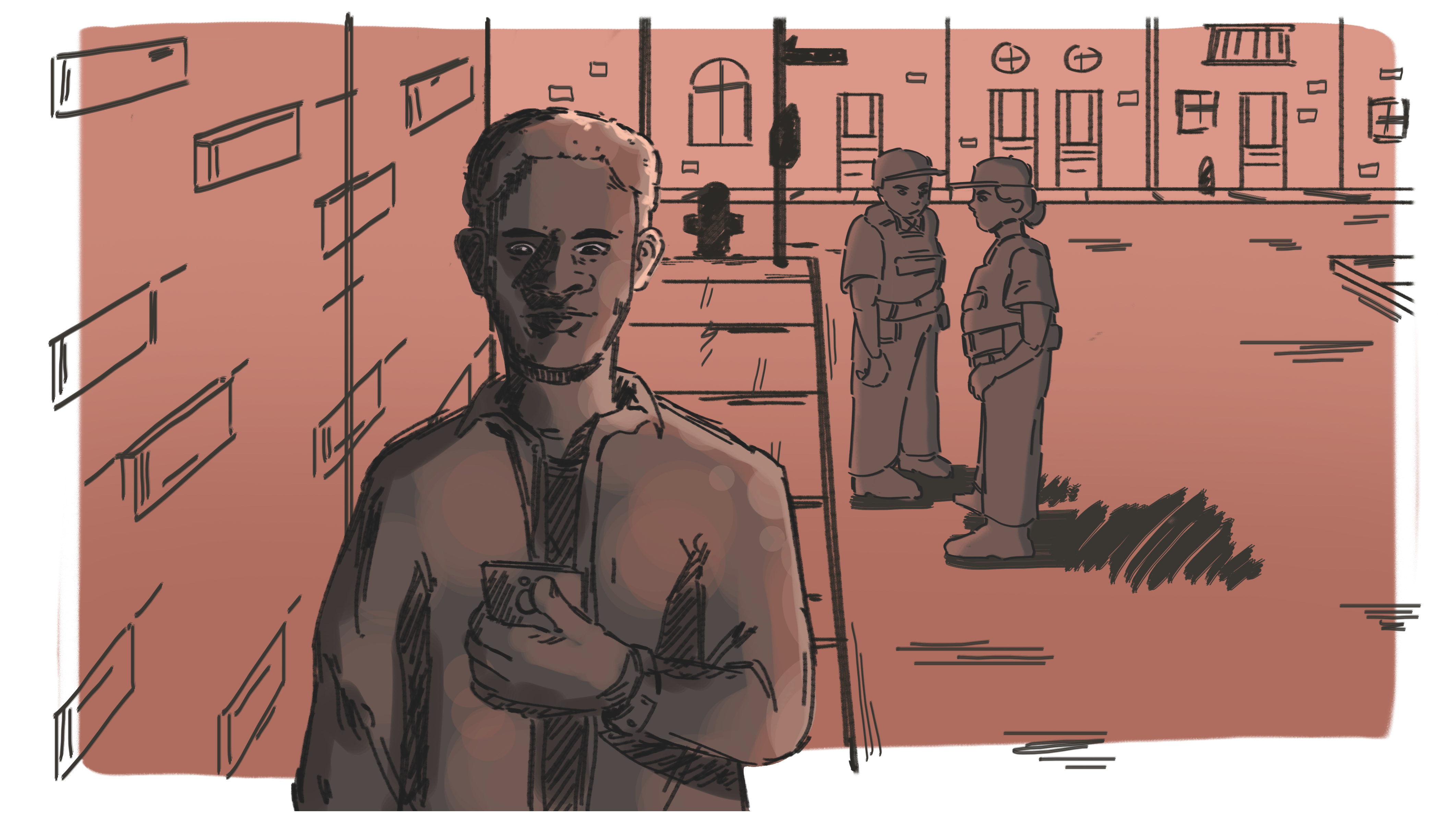The ruling will be implemented within six months. In the meantime, activists are wondering what this means for the fight against racial profiling
On Oct. 25, Quebec Superior Court judge Michel Yergeau ruled the power of the police to stop drivers at random to be unconstitutional and discriminatory, in a challenge brought to court by Joseph-Christopher Luamba. Luamba, a black Montrealer who has been pulled over by the police without reason numerous times, decided to challenge this power, arguing that it violates certain constitutional rights.
Laura Berger, a lawyer with the Canadian Civil Liberties Association, said this issue has been on the association’s radar for a long time because of overpoliced communities, namely Black and Indigenous communities, speaking up against racial profiling. The association jumped on the constitutional challenge when Luamba decided to take this issue to court.
“Over the course of a very short amount of time [Luamba] was stopped by the police on different occasions while in a vehicle and he chose to initiate a challenge,” said Berger. “Before [the ruling], the police could stop you if you’re driving even if there is no reason at all and request your license, registration and proof of insurance.”
Berger explained that random traffic stops are disproportionately used to arrest Black and Indigenous drivers when compared to white drivers.
“Even though on its face that power is neutral, what we know from social sciences and experiences of individuals is that this power gets used disproportionately against Black drivers,” said Berger.
The Concordian spoke with activist and writer Christophe, who wished to remain anonymous, about his experiences with racial profiling while driving in Montreal a month ago. Though he didn’t receive a ticket, for him this is a clear example of how the police in Quebec use their power to act on their personal biases.
“I’m a six foot Black man who speaks English, I don’t speak French so right away I’m intimidating to them because of my stature and they cannot speak to me so that creates tension,” explained Christophe. “So there’s a lot of different factors and variables that we need to consider. When you give the police this much power, they operate without impunity, they do whatever they want because for them to be punished is very difficult.”
Christophe is skeptical that the recent ruling will change the way the police treat Black and Indigenous people.
“This decision is not going to change the fact that they can pull people over for any reason they want,” argued Christophe. “They could say ‘we smelled marijuana coming out of your car,’ they could say anything arbitrary.”
While Christophe believes the decision is a start, he argues that police officers needs to be held accountable when instances of racial profiling occur.
“I think we could start by defunding the police, giving them less funds, and start sanctioning them when they pull people over for no reason,” Christophe said. “If you suspend them with pay, they’re never going to change but when you start touching their pockets they’ll straighten themselves.”
Berger admits that, while Yergeau’s decision is not a substantial initiative, it is a necessary one.
“This decision is not going to end racial profiling from one day to the next but he said that, as a society, we need to show racial profiling to the door and that is one step in the right direction,” she said. “But it is absolutely clear that this decision is not sufficient.”
Berger elaborated that this decision only deals with a very specific case of racial profiling and that racial biases, on the other hand, affect all aspects of policing.
“We know that at every juncture of the judicial police system […] there are race-based disparities at every stop especially for Black and Indigenous folks,” said Berger.
However, for Berger this decision fits into a broader movement propelled by activists and communities speaking out. She says that even though this decision will not stop racial profiling overnight, it could inspire more changes in this direction.
“We have seen an increasing amount of research that highlights these disparities, we have seen recommendations across government bodies,” said Berger. “This helped inform [Yergeau’s] decision and I think it can be used outside of this specific context, other courts might take inspiration, policy-makers might look at these findings to try to incorporate them.”
The Superior Court’s Oct. 25 ruling will come into effect in six months in order to give the government and the police enough time to respond to the changes.
Graphic by Carleen Loney
